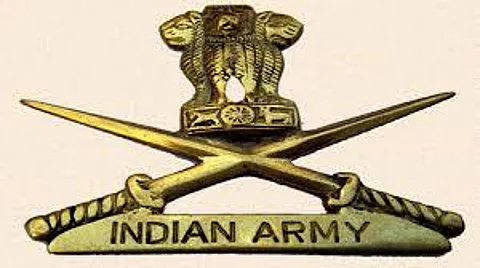
- Home
- Live Blog
- Breaking News
- Top Headlines
- Cities
- NE News
- Sentinel Media
- Sports
- Education
- Jobs

OUR
CORRESPONDENT
ITANAGAR: The Indian Army marked World First Aid Day in Shi-Yomi district of Arunachal Pradesh on Saturday with a twin outreach initiative that combined lifesaving medical training and an environmental cleanliness drive, a defence official said.
While comprehensive first aid and CPR awareness sessions were conducted at Manigong and Menchuka, a parallel campaign on waste management and garbage disposal was launched in Menchuka, underscoring the Army’s commitment to both health security and sustainable living. The dual programmes directly benefited over 200 civilians, Guwahati-based Defence spokesperson Lt Col Mahendra Rawat informed.
At Manigong, the Regimental Medical Officer (RMO) conducted a detailed session, which included lectures and live demonstrations of essential first-aid techniques and hands-only CPR.
The outreach drew 110 participants, comprising 80 men, 18 women and 12 children. Simultaneously, at Menchuka, the training emphasised foundational first-aid principles and CPR familiarisation.
The RMO placed special focus on equipping civilian medical staff, village volunteers and community members with practical, step-by-step techniques to respond during the critical ‘golden hour’ before professional help arrives, the spokesperson said.
“Immediate, informed response saves lives,” the RMO stressed, adding that simple but sequential actions, checking scene safety, calling for help, controlling bleeding and administering CPR when needed, can make the difference between life and death, he added.
The Indian Army also joined hands with the tourist information office of the district to drive home the importance of environmental hygiene through an awareness lecture and cleanliness campaign in Menchuka.
Reinforcing the Swachh Bharat mission, the session introduced community-level solutions such as segregation at source, the 2-bin-1-bag system, reduction of single-use plastics, safe handling of biomedical waste, and home composting.
The waste hierarchy - Reduce, Reuse, Recycle, was explained as a cornerstone of sustainable waste management.
Speakers also highlighted the link between clean surroundings, tourism potential and long-term livelihoods in the high-altitude, eco-sensitive valley. Participants were warned of the dangers of open waste burning and encouraged to adopt simple, local innovations for waste handling in schools, markets, village wards and force habitats.
Also Read: Nathula Vijay Diwas Commemorated with Ceremony at Nathula Pass
Also Watch: